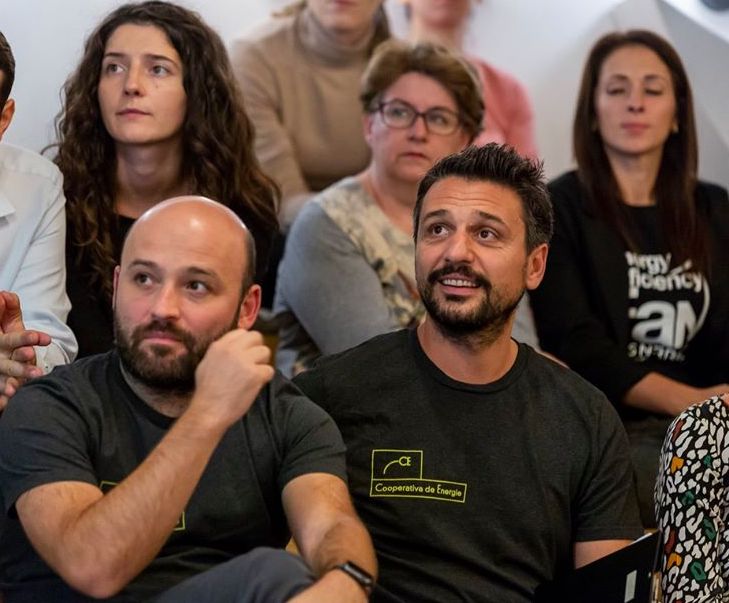Last year Romania welcomed its first renewable energy co-operative, which plans to produce and distribute 100% green energy.
While renewables account for 24% of the energy consumption in Romania, Cooperativa de Energie is the first renewables business to set up there as a co-operative.
Launched last November, the co-op has recruited 300 members, with the Covid-19 pandemic affecting its ability to attract more, says Adrian Munteanu, the co-op’s first employee and one of its founding members.
The project was started by Victor Iancu, an entrepreneur with experience in the energy sector who was inspired by Som Energia in Catalunya, a renewable energy co-op with 64,500 members. Gijsbert Huijuk, one of the founders of Som Energia and a friend of Mr Iancu, has already joined Cooperativa de Energie.

During the early days of the project, Mr Iancu was also involved in a local neighbourhood watch group in Cotroceni, western Bucharest, where he met lawyer Dinu Drog.
“I had worked on a legal project related to renewable energy and I liked the co-operative out-of-the-box approach and the idea of an energy community,” said Mr Drog.
The two were soon joined by 13 other founding members.
Setting up the co-op was not without challenges. Existing Romanian legislation on co-operatives has not been updated since 2005 and is not suitable for setting up an energy co-op, says Mr Drog.
Achieving the meeting quorum required by law would have been difficult for a co-operative with a large number of members, he added. The solution was to create a European Co-operative Society.
This means the co-op can welcome members from other European states. As a European Co-operative Society, Cooperativa de Energie can also have a limited proportion of ‘investor members’. They do not use the services of the co-operative and their voting rights are limited.
The co-op has also recently joined REScoopEU, the European federation of renewable energy co-operatives, to engage with and learn from other renewable energy co-ops. “We are not trying to reinvent the wheel,” says Mr Drog.
Another hurdle was that the authorities and wider public are not familiar with the co-op model. In many former communist countries, the word co-operative is a reminder of forced collectivisation for those in their mid-40s or older. But new generations are coming through and these – especially in urban areas – are becoming more and more interested in collective ventures and social enterprises that can make a difference to local communities.
Mr Drog says Cooperativa de Energie is looking to buy an existing energy provider. “We aim to offer a competitive price,” he said. “We do not know yet whether it will be higher or lower than what is already on the market, but it will be transparent, and we will be offering a service premium, providing 100% green energy along with other benefits for members, including group buying and discounts for sustainable products.”
Some customers may not want to become members of the co-op. “Our value proposition to them is: clear contracts, no hidden charges and excellent customer service. We want to show that you can do business in an ethical, transparent manner,” says Mr Munteanu.
Full members can join for a minimum of LEI100 (£18.51) while investor members need to contribute a minimum of LEI500 (£92.55). The co-op has 300 members and hopes to reach 500 by the end of the year.
Members can use the co-op’s platforms to get involved in their community. For instance, Vecinultau.ro, a platform launched by the co-op in response to Covid-19, enables people to sign up as volunteers or vulnerable citizens who need help with shopping, picking up prescriptions or walking their pets. Around 3,000 volunteers have signed up so far.
The co-op hopes to start distribution in early 2021. As for the future, it will be looking to produce its own energy. In doing so, it hopes to also reinvigorate the country’s community spirit.